Featured
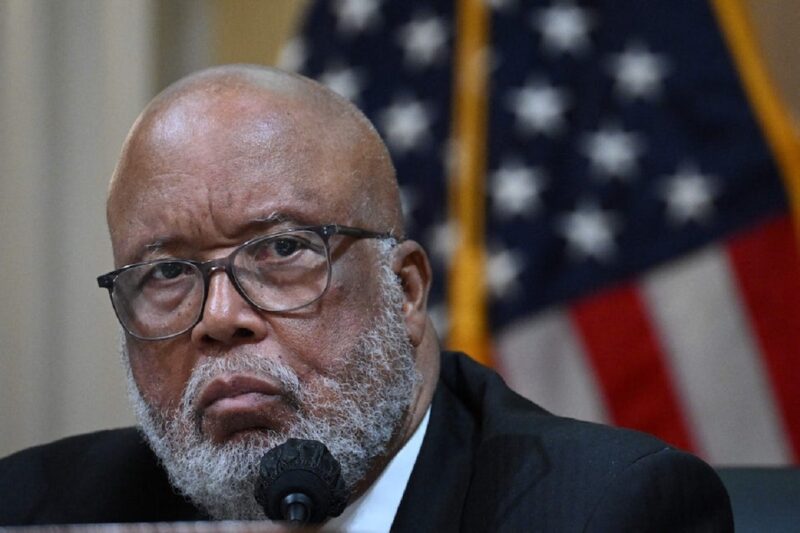 The January 6 Committee Did Its Job: Trump Will Live in Infamy. By Matt Ford / The New Republic
The January 6 Committee Did Its Job: Trump Will Live in Infamy. By Matt Ford / The New Republic
The House committee made the case for multiple criminal charges against the former president. Now it’s up to the Department of Justice to prosecute him.
“In the Committee’s hearings, we presented evidence of what ultimately became a multi-part plan to overturn the 2020 Presidential election,” the committee said in the report’s 158-page executive summary, which it released on Monday. “That evidence has led to an overriding and straight-forward conclusion: the central cause of January 6th was one man, former President Donald Trump, who many others followed. None of the events of January 6th would have happened without him.” Read more
Related: The Lesson of Trump: Character Matters. By Robert Tracinski / The Bulwark
Related: What Truly Reckoning With Trump’s Insurrection Would Look Like. By Garrett M. Graff / Politico
Related: The Buck Passing on Trump’s Lawlessness Stops Here. By David Frum / The Atlantic
Political / Social
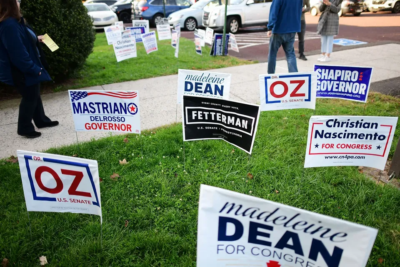 What Democrats should have learned from the midterms: It’s time to fight for justice. By Chauncey Devega / Salon
What Democrats should have learned from the midterms: It’s time to fight for justice. By Chauncey Devega / Salon
Democrats have an opportunity to seize the moral high ground as the party of justice. Will they take it?
America’s democracy crisis is also a moral crisis, and its fundamental questions are also moral questions. Will women have control over their own bodies? Will an increasingly diverse society be governed by white minority rule? Will votes actually be counted fairly or will they be nullified if they support the “wrong” candidate or party — meaning anyone other than Republicans? Will White Christian nationalists be able to impose their will on society as a whole, with no regard for the Constitution? Will America surrender to plutocracy and its extreme wealth and income inequality, or will the country instead become a social democracy where people on both sides of the color line have a reasonable chance at intergenerational upward mobility and the “American dream”? Will our democracy fulfill its promise at last, or degenerate into a system of “competitive authoritarianism” modeled on Russia or Hungary? Read more
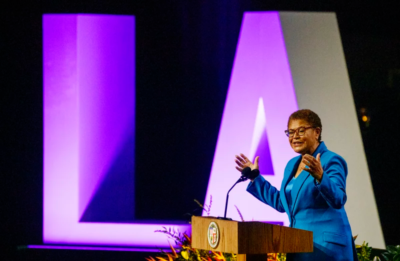 The Los Angeles mayor says the city will move unhoused people indoors. By Ayana Archie / NPR
The Los Angeles mayor says the city will move unhoused people indoors. By Ayana Archie / NPR
Los Angeles Mayor Karen Bass said she will be moving unhoused people into hotels and motels while the city builds more affordable housing, she said in an interview Sunday.
The initiative, called Inside Safe, is expected to launch Tuesday, eight days after Bass was sworn in and declared homelessness a state of emergency. “Well, you know, what we have found in the community organizations that we’re bringing in to do this work is that you can get 95% of the people housed,” she said on NBC’s Meet the Press. “People will go. It takes a while. You have to do outreach.” Read more
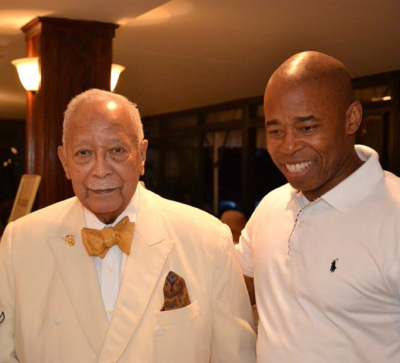 In Criticism of Eric Adams, Some See Echoes of David Dinkins. Jeffery C. Mays and Fitzsimmons / NYT
In Criticism of Eric Adams, Some See Echoes of David Dinkins. Jeffery C. Mays and Fitzsimmons / NYT
Mayor Eric Adams said that when some people “look at these two Black mayors, Dinkins and my role now, there are those that wish we fail.”
To former Gov. David A. Paterson, it all seemed too familiar: the condemnations, the diminution of character, the absence of any honeymoon period. That, he said, was his experience as governor of New York. He remembered that David N. Dinkins had gone through it as the mayor of New York City. And now, he said, it is happening to Mayor Eric Adams, the second Black mayor in the city’s history. “There is certainly an attempt to make elected Black officials, particularly those who became executives like mayors and governors, to make them look not serious,” Mr. Paterson said in an interview. White leaders, he said, were rarely scrutinized so closely over where they ate or how they dressed, and he suggested that unconscious bias was at play. Read more
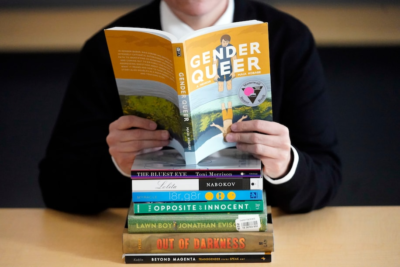 Book banning is bad policy. Let’s make it bad politics. By E.J. Dionne / Wash Post
Book banning is bad policy. Let’s make it bad politics. By E.J. Dionne / Wash Post
Amanda Darrow, director of youth, family and education programs at the Utah Pride Center, poses in Salt Lake City on Dec. 16, 2021, with books that have been the subject of complaints from parents. (Rick Bowmer/AP
There was a time when the term “Banned in Boston” was one of the best things that could happen to a book, a play or a movie. From roughly the 1880s to the mid-20th century, a censoriousness rooted in the city’s Puritan past supported especially aggressive laws aimed at suppressing material seen as salacious or dangerous. For many, the label was a guarantee that whatever was banned must have been, well, interesting. Read more
 Man who pleaded guilty to hate crime ordered to write essays about racism. By Gloria Oladipo / The Guardian
Man who pleaded guilty to hate crime ordered to write essays about racism. By Gloria Oladipo / The Guardian
Jarl Rockhill also required to read Ta-Nehisi Coates, as part of plea deal for plastering a racist sticker outside refugee non-profit. Shown are numerous rifles and handguns taken during his arrest.
Rockhill pleaded guilty to a hate crime charge in late November. In the incident concerned, in April, he plastered a sticker featuring racist imagery on to a fence outside the Immigrant and Refugee Community Organization (IRCO), a non-profit agency in Portland. The sticker depicted a man performing the Nazi salute with the caption “pure”. Rockhill was also identified as a member of a Portland-based neo-Nazi group, the Washington Post reported. The judge in the case, Christopher Ramras of the Multnomah county circuit, also ordered that Rockhill read Between the World and Me, by Ta-Nehisi Coates, and watch the documentary Myanmar’s Killing Fields, which concerns the Rohingya genocide in the south-east Asian country. Rockhill was ordered to write 750- and 500-word essays on what he has learned, to the satisfaction of his probation officer. Read more
 Candace Owens Exposes Only Herself in Her BLM Documentary. By Eamon Whalen / Mother Jones
Candace Owens Exposes Only Herself in Her BLM Documentary. By Eamon Whalen / Mother Jones
In “The Greatest Lie Ever Sold,” the far-right media mogul sinks to new lows
A little over a week after Floyd was killed, Owens recorded a video saying she did not support the protests. She told her phone that the media depiction of Floyd as a martyr for Black America ignored his past criminal record. Then, Cenk Uygur and Ana Kasperian of The Young Turks made fun of her. Dave Chappelle called her “a rotten bitch.” The criticism, Owens says, motivated her to, “scream the truth louder than you scream the lies.” Owens is the film’s star, narrating and playing the role of the intrepid reporter. The film toggles back and forth between Owens doing on-the-ground shoe leather work; interviewing different talking heads on camera; and editorializing in her own confessional, straight-to-camera monologues. Its style is reminiscent of the left-wing muckraking films of Michael Moore. Read more
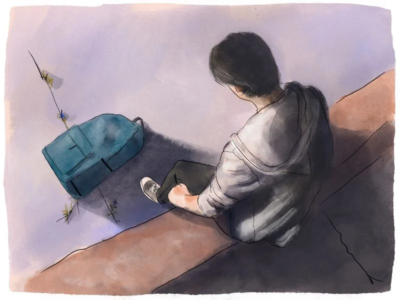 This School District Is Ground Zero for Harsh Discipline of Native Students in New Mexico. By Bryant Furlow, Asia Fields, Maya Miller and Joel Jacobs / Propublica
This School District Is Ground Zero for Harsh Discipline of Native Students in New Mexico. By Bryant Furlow, Asia Fields, Maya Miller and Joel Jacobs / Propublica
In Gallup-McKinley County Schools, wearing the wrong color shirt can get you written up for “gang-related activity.” Banging on a window is bullying. The district is responsible for most of New Mexico’s disproportionate expulsions of Native students.
In New Mexico, Native American students are expelled far more often than any other group and at least four times as often as white students. Matthew’s school district, Gallup-McKinley County Schools, is responsible for most of that disparity, according to an analysis of state records by New Mexico In Depth and ProPublica. The district has a quarter of New Mexico’s Native students, but it accounted for at least three-quarters of Native student expulsions in the state during the four school years ending in 2020. Read more
 For the 1st time, a Black female Marine is set to be a 2-star general. By Irene Loewenson / Marine Times
For the 1st time, a Black female Marine is set to be a 2-star general. By Irene Loewenson / Marine Times
President Joe Biden appointed Brig. Gen. Lorna Mahlock to the grade of major general, the Pentagon announced on Dec. 6, and the Senate confirmed her Thursday. Mahlock is the deputy director of cybersecurity for combat support at the National Security Agency at Fort Meade, Maryland.
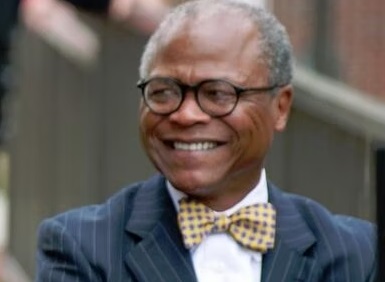 Historically Black Colleges, Family Sacrifices, and the American Dream. By Liann Herder / Diverse Issues In Higher Ed.
Historically Black Colleges, Family Sacrifices, and the American Dream. By Liann Herder / Diverse Issues In Higher Ed.
Dr. Alvin Schexnider, former chancellor of Winston-Salem University and author of Saving Black Colleges and Mayfield and Schexnider: Portrait of a Family.
In Mayfield and Schexnider: Portrait of a Family, Schexnider unravels past mysteries while connecting the faith and encouragement of past generations to the success of future descendants, how family sacrifices put children on the path toward higher education and successful careers, almost all of which began at Historically Black Colleges and Universities (HBCUs).Read more
Ethics / Morality / Religion
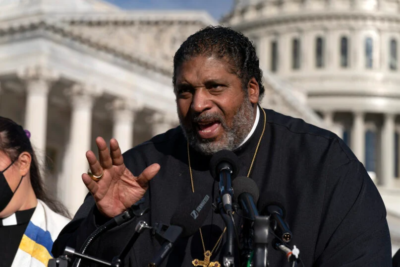 William Barber launches new center at Yale, will retire from church. By Jack Jenkins / RNS
William Barber launches new center at Yale, will retire from church. By Jack Jenkins / RNS
The Rev. William Barber said the center’s goal is to ‘prepare a new generation’ to create ‘a just society both in the academy and in the streets.’
Yale Divinity School is launching a new Center for Public Theology and Public Policy, an advocacy-focused body to be led by prominent pastor and activist the Rev. William Barber II. “The goal of this center will be to prepare a new generation — what we call moral fusion leaders — that are going to be active in creating a just society both in the academy and in the streets,” Barber told Religion News Service in an interview. Read more
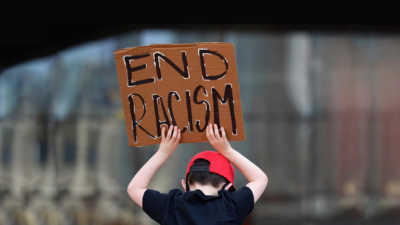 Pushing back against hate does matter. By Jennifer Rubin / Wash Post
Pushing back against hate does matter. By Jennifer Rubin / Wash Post
Taney not only wrote the court’s Dred Scott decision, which held that a slaveowner could reclaim a slave who resided in a free state, but affirmed in that ruling that Blacks had been permanently shut out of citizenship. They were non-people in the eyes of the court. As Taney wrote, “they were at that time [of America’s founding] considered as a subordinate and inferior class of beings who had been subjugated by the dominant race, and, whether emancipated or not, yet remained subject to their authority, and had no rights or privileges but such as those who held the power and the Government might choose to grant them.” Read more
 Think America is a ‘Christian nation’? George Washington didn’t. By Jennifer Rubin / Wash Post
Think America is a ‘Christian nation’? George Washington didn’t. By Jennifer Rubin / Wash Post
At the White House’s Hanukkah celebration Monday night, President Biden attested to the “permanence” of the Jewish people in the United States. As did past presidents, he welcomed the holiday that seeks to “re-create the wonder of the Maccabees and the oil with a blessing that recalls the miracles performed both in the days of old and at this time.”
But he did not ignore the cloud of antisemitism hanging over the joyous holiday season. “I recognize your fear, your hurt, your worry that this vile and venom is becoming too normal,” Biden said. He added, “Silence is complicity. We must not remain silent. … Today, we must all say clearly and forcefully: Antisemitism and all forms of hate and violence in this country can have no safe harbor in America. Period.” Read more
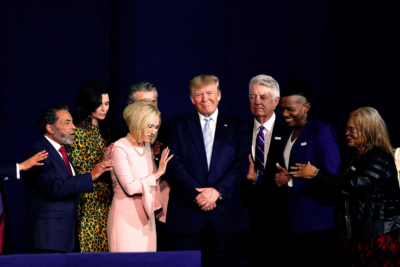 “We Will Get Destroyed”: Evangelicals Are Quietly Ditching Donald Trump’s 2024 Bid. By Caleb Ecarma / Vanity Fair
“We Will Get Destroyed”: Evangelicals Are Quietly Ditching Donald Trump’s 2024 Bid. By Caleb Ecarma / Vanity Fair
Several prominent pastors say their congregations are looking to others like Mike Pence and Ron DeSantis to steer the Republican Party back on track. “Donald Trump has to go,” as one evangelical columnist put it.
In the lead-up to the 2020 election, Donald Trump leaned heavily on his own version of the “silent majority,” hoping that a mythical demographic, which handed Richard Nixon two presidential victories, would carry him across the finish line. That prediction did not pan out in 2020—or in this year’s midterms. And after suffering three disappointing election cycles, Trump now appears to be faced with a silent majority of conservatives who are turning increasingly against him: evangelical voters. Read more
 Catholic group under attack by GOP for aiding migrants says its work ‘is mandated by the gospel.’ By Gabe Ortiz
Catholic group under attack by GOP for aiding migrants says its work ‘is mandated by the gospel.’ By Gabe Ortiz
Sister Norma Pimentel, Executive Director of Catholic Charities of the Rio Grande Valley greets a group of some 25 asylum seekers at a bus station after they were allowed to cross from a migrant camp in Mexico into the United States on Feb. 25, 2021, in Brownsville, Tex
Humanitarian workers are slamming a baseless threat by Texas’ right-wing governor, who, without providing one shred of evidence, is directing his corrupt attorney general to investigate whether organizations have been helping migrants unlawfully cross into Texas. Texas officials know damn well that groups are aiding migrants who have already been processed and released by federal officials, and we know that they know this because these are the same migrants they’ve rounded up for Abbott’s busing stunt. What Abbott is actually doing is intimidating groups as the Biden administration is set to lift the anti-asylum Title 42 order next week. Read more
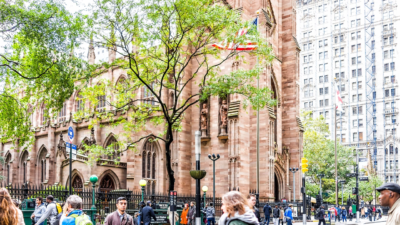 Churchgoing and belief in God stand at historic lows, despite a megachurch surge. By Daniel de Vise / The Hill
Churchgoing and belief in God stand at historic lows, despite a megachurch surge. By Daniel de Vise / The Hill
Church membership, church attendance and belief in God all declined during the pandemic years, survey data suggest, accelerating decadeslong trends away from organized worship. At least one-fifth of Americans today embrace no religion at all. Researchers call them “nones.” A similar share tell pollsters they do not believe in God, an all-time high.
The decline is largely driven by a surging population of “nones,” or Americans who claim no religion, at 21 percent, as of 2021, according to Gallup. It’s tempting, if not entirely accurate, to conflate “nones” with nonbelievers. Yet, one Pew analysis found that a significant share of “nones” consider religion important in their lives. “Somebody who has no religious affiliation, they may well value religion,” said David Campbell, a political scientist at the University of Notre Dame. “And they may well believe in God.” Belief in God was near-universal in previous generations. It’s a notion bound up in American identity, not to mention American currency. Read more
Related: Black atheist leaders quit Black Nonbelievers over alleged misconduct by president. By RNS
Historical / Cultural
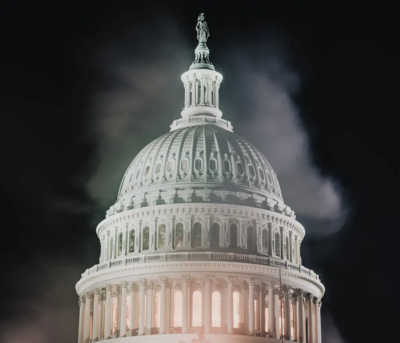 How Will History Remember Jan. 6? By Lydia Polgreen / NYT
How Will History Remember Jan. 6? By Lydia Polgreen / NYT
Far-right groups stockpiling guns and explosives, preparing for a violent overthrow of a government they deem illegitimate. Open antisemitism on the airwaves, expressed by mainstream media figures. Leading politicians openly embracing bigoted, authoritarian leaders abroad who disdain democracy and the rule of law.
When asked about the meaning of contemporary events, historians like to jokingly reply, “Ask me in 100 years.” This week, the committee in the House of Representatives investigating the Jan. 6 Capitol riot will drop its doorstop-size report, a critical early installment in the historical record. Journalists, historians and activists have already generated much, much more material, and more is still to come. Read more
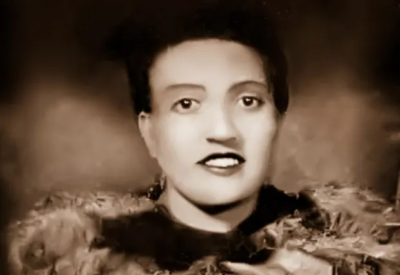 Henrietta Lacks statue to replace Robert E Lee monument in Virginia. By Ramon Antonio Vargas / The Guardian
Henrietta Lacks statue to replace Robert E Lee monument in Virginia. By Ramon Antonio Vargas / The Guardian
A bronze statue of Henrietta Lacks – whose cells were taken from her body without her permission before they facilitated numerous medical advances – is taking the place of a monument to the Confederate general Robert E Lee that was removed from her Virginia home town, officials announced this week.
Sculptor Larry Bechtel is designing the statue that is scheduled to be erected in Roanoke in October 2023 in a victory for supporters of the Black Lives Matter movement. At an announcement ceremony on Monday, Bechtel said that he would reference a life-size drawing of Lacks by the artist Bryce Cobbs, ABC News reported. Read more
When America teaches slavery, it often leaves out some of history’s most amazing stories. We created Black Folklore to give a voice to the lost tales of America’s turbulent past. Here is the story of the Black Seminoles, a group of fugitive slaves who escaped bondage and created a community of free Blacks in Mexico. In the early 1700s, when what we know as America began to take shape, some Gullah Geechee slaves were able to escape slavery more than 150 years before the start of the Civil War. These fugitive slaves fled south into the Florida peninsula from coastal South Carolina and Georgia. At the time Florida, which was owned by the Spanish, was nothing more than a swampy jungle. Read more
Related: They were enslaved as Native Americans, then lost to their tribes. By Julie Zauzmer Weil / Wash Post
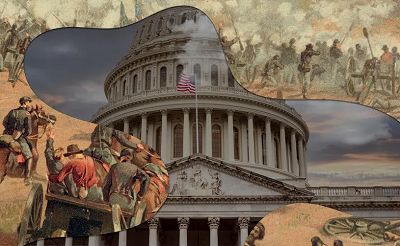 Was the Civil War Inevitable? By David W. Blight / NYT
Was the Civil War Inevitable? By David W. Blight / NYT
A historian of the conflict traces the path to disunion in the 1850s — and the lessons it holds for our own era of deep division.
A recent book offers sobering prospects for where our current situation might lead. Barbara F. Walter’s “How Civil Wars Start” examines more than 200 civil wars in modern history and suggests two major variables that help gauge the potential for civil conflict. The first is whether a government is a “partial democracy” — either a backsliding democracy or an autocracy trying to democratize — and the second is whether its population is voting based on people’s ethnic, religious or racial identity rather than on something else. Walter argues that we will never again see a sectional or regional conflict between armies in the United States, but she believes that decentralized insurgencies, which she calls the “21st-century civil war,” are possible. Read more
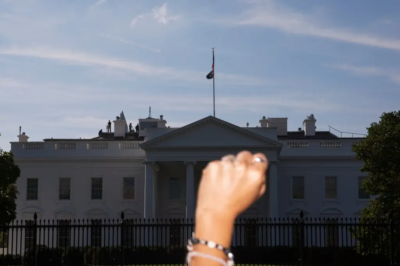 A 200-Year-Old Argument on Behalf of the Many Against the Few. By Jamelle Bouie / NYT
A 200-Year-Old Argument on Behalf of the Many Against the Few. By Jamelle Bouie / NYT
To close out the year, I want to highlight one argument from the latter tradition of American democracy, written in the early days of the age of Jackson on behalf of the many against the few.
For Skidmore, following Thomas Jefferson, there could be no liberty without economic independence. But while Jefferson sought the expansion of the United States in an “empire of liberty” whose vast territories would produce a society of independent farmers and agrarian virtue, Skidmore imagined a world in which the state took a leading role in establishing the conditions for meaningful equality. This meant, first and foremost, an end to the accumulation and hereditary transmission of property, which he calls “two great and radical evils” that have “caused all the misfortunes of man.” Read more
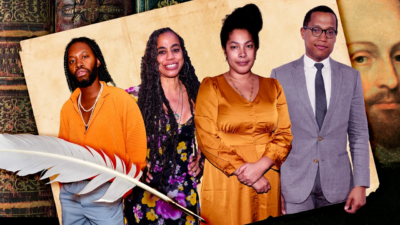 What Black Playwrights Taught Me About Shakespeare. Alicia Andrzejewski / HuffPost
What Black Playwrights Taught Me About Shakespeare. Alicia Andrzejewski / HuffPost
How might we read, produce and perform Shakespeare’s plays in ways that center Black lives? The author teaches the work of playwrights Jeremy O. Harris, Suzan-Lori Parks, Jackie Sibblies Drury and Branden Jacobs-Jenkins in her Shakespeare class.
Over the past two years, I’ve been exploring answers to these questions at William & Mary in my “Black Lives in Shakespeare” course. The class pairs five of his plays with work by contemporary Black playwrights whose plays very specifically think through transformative racial change. My students and I read these plays alongside Black scholars to explore the question of Shakespeare’s continued relevance to “whatever it is you learn from the theater,” as Jacobs-Jenkins says in the aforementioned monologue: “Sympathy? Compassion? Understanding?” Read more
 You may be seeing a more ‘woke’ Santa Claus this Christmas. By John Blake / CNN
You may be seeing a more ‘woke’ Santa Claus this Christmas. By John Blake / CNN
Santa Claus has traditionally been portrayed as a jolly, white guy, but Truax represents a push for diversity in the Santa industry that has accelerated in recent years. In some parts of the US, the traditional definition of Santa as a straight White guy who heads out to work while Mrs. Claus stays at home baking cookies just won’t fly anymore. And, of course, there are Black Santas, who are in such high demand that one such Santa said he earns up to $60,000 each holiday season. Read more
Sports
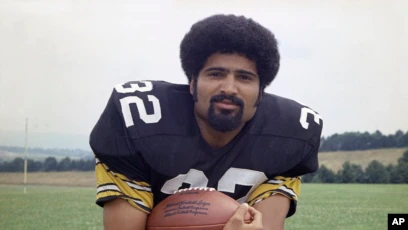 Franco Harris, N.F.L. Hall of Famer Who Caught ‘Immaculate Reception,’ Dies at 72. Richard Sandomir and / NYT
Franco Harris, N.F.L. Hall of Famer Who Caught ‘Immaculate Reception,’ Dies at 72. Richard Sandomir and / NYT
A Hall of Fame running back, he died days before the 50th anniversary of one of the most memorable plays in N.F.L. history.
Franco Harris, the Hall of Fame running back for the Pittsburgh Steelers whose shoestring catch known as the “Immaculate Reception” in 1972 remains one of the most memorable moments in N.F.L. history, died on Tuesday night at his home in Sewickley, Pa., a suburb of Pittsburgh. He was 72. The 6-foot-2 Harris won four Super Bowls with the Steelers as they established themselves as the N.F.L.’s most dominant team of the 1970s. He was named to the Pro Bowl in each of his first nine seasons. But it was a single heads-up play that more than anything defined his career. Read more
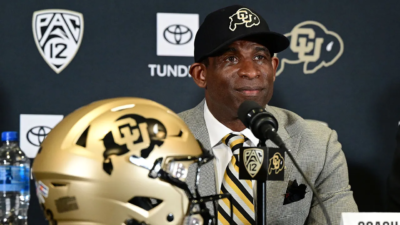 Deion Sanders says many critics of Jackson State move were hurt. By Steven J. Gaither / HBCU Game day
Deion Sanders says many critics of Jackson State move were hurt. By Steven J. Gaither / HBCU Game day
Deion Sanders talked to Shannon Sharpe about the backlash he received, and a conversation with Ashley Robinson
Deion Sanders and Shannon Sharpe are both men who have plenty to say, and many ears that want to listen. The two Pro Football Hall of Famers got together for a chat on the Colorado campus days after Sanders’ time at Jackson State came to an end. They chatted about several things on the Club Shay Shay platform, including the negative reaction by some to Sanders departing from Jackson State. “They only see what you didn’t do and they didn’t give you credit for what you did do,” Sharpe told Sanders about how he felt about the criticism. Sanders said most of what he observed was frustration. Read more
 History-making Asian American soccer player describes his journey to self-acceptance. By Kimmy Yam / NBC News
History-making Asian American soccer player describes his journey to self-acceptance. By Kimmy Yam / NBC News
Kellyn Acosta, the first Asian American to appear in the World Cup for the USMNT, described how others have dismissed his Japanese heritage, and the harmful stereotypes around Asians and sports.
The moment Team USA midfielder Kellyn Acosta’s feet touched the turf at the FIFA World Cup in Qatar, he said he felt awash with gratitude. The professional soccer player, who’s Black and Japanese American, said he knew his participation in the international tournament would mean “something that’s just bigger than me.” “It is more of an honor. I don’t think ‘burden’ is the right word for it,” Acosta told NBC News from Los Angeles. “I’m representing my country, I’m representing Asian Americans and I’m representing this sport in the U.S. I think it is truly a special thing.” Read more
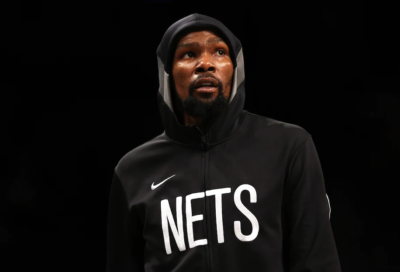 Kevin Durant still just wants to hoop. The game demands more. By Michael Lee / Wash Post
Kevin Durant still just wants to hoop. The game demands more. By Michael Lee / Wash Post
Durant remains one of the most-talked-about players in the NBA, though not always one of the most listened to. His words are dissected for hidden meanings, misinterpreted for clicks and likes. It frustrates him, but he continues to be expressive, sensitive, sometimes surly and, when needed for a quote or for a bucket, available.
“It’s so much that you can learn from being an NBA player,” he says. “Life lessons in basketball. The business around the NBA. There is so much to learn here. So every stop along the way is an experience in order for me to accelerate and be better in the next part of my life.” Read more
Site Information
Articles appearing in the Digest are archived on our home page. And at the top of this page register your email to receive notification of new editions of Race Inquiry Digest.
Click here for earlier Digests. The site is searchable by name or topic. See “search” at the top of this page.
About Race Inquiry and Race Inquiry Digest. The Digest is published on Mondays and Thursdays.
Use the customized buttons below to share the Digest in an email, or post to your Facebook, Linkedin or Twitter accounts.
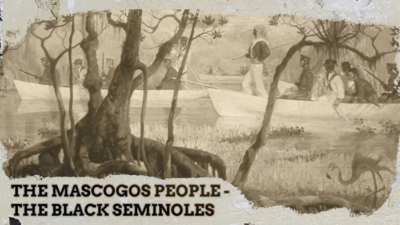 The Black Seminoles: How Fugitive Slaves Escaped To Mexico Before The Civil War. By Bilal G. Morris / Newsone
The Black Seminoles: How Fugitive Slaves Escaped To Mexico Before The Civil War. By Bilal G. Morris / Newsone